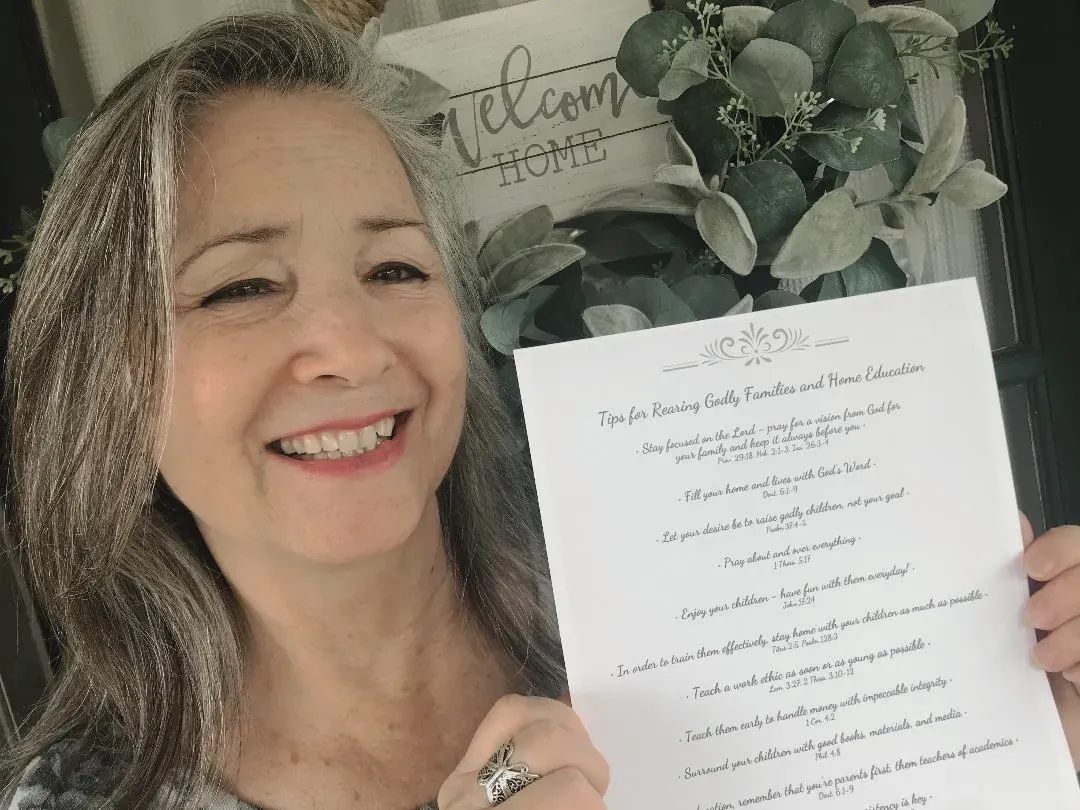ORGANIC GARDENING AND THE HIDDEN ENEMY
do you grow an ORGANIC GARDEN?
(And are you wondering what on earth that ugly thing is lying on the ground next to my foot?? I’ll explain shortly…)
But first let me ask--have you ever considered organic gardening? If you’ve never grown one, or have used only conventional Rototillers® and chemical fertilizers, I encourage you to do it organically! If you decide to try it, I believe you'll experience tremendous satisfaction when you bite into that beautiful, bursting-with-flavor, highly nutritious produce you've grown entirely through your own hard work. Not only that, but because you'll know exactly where your food comes from, you’ll have peace of mind, knowing it's safe to feed your family.
TRY IT, YOU’LL LIKE IT!
Growing an organic garden has indeed been very rewarding! It's one of numerous ways God has shown me truth, and I absolutely love this about Him! He has taught me many different lessons, particularly in regard to raising a family. (See the blog post, “BE FRUITFUL”, for a more comprehensive discussion on this theme.) At this point in my life though, I've decided to just grow tiny 'postage stamp' gardens in my old compost pile. Each year, in spite of its size, I've harvested quite an abundance of vegetables. One season a butternut squash vine randomly sprouted from the previous year and, I kid you not, yielded 36 squashes that Fall!! I was elated--they're my absolute favorite.
Also, now that there are just the two of us, I only plant a few vegetables--no more than four tomato, pepper, cucumber, and squash plants, but sometimes even these are too much. The best part of it all, however, is that because this is where I compost my kitchen scraps, the soil is essentially already prepared when I'm ready to plant--it's moist, loose, and rich in nutrients. Hence, once I plant my garden, it should produce enough for my husband and I, with plenty left over to share with others.
THE HOW OF ORGANIC GARDENING
Clearly, as with any garden, an organic garden involves much more than just scattering seeds over the soil and waiting for sun and rain! Just as in a conventional garden, it involves a lot of work, but in my opinion the work gets easier once you lay a good foundation. Accordingly, as with anything worth doing, adequately preparing the soil so that it yields an abundant harvest is essential in organic gardening, and fortunately there is a much less expensive alternative. Thinking back to my early experience, I quickly learned I could turn up the soil with a simple garden spade. There's really no need for the extra cost and trouble of using an awkward, heavy Rototiller®. * Mechanically cultivated soil is much too harsh for an organic garden; it needs the gentle human touch:)
The next step is to enrich the soil with organic amendments such as fish emulsion, wood ash, and if needed, more organic compost. During the growing season, you might also want to add more but this depends on weather conditions and the individual requirements of each plant variety. Then comes the fun part! -- choosing [preferably] organic and/or heirloom seeds and transplants you wish to feed your family after harvesting.
Another thing to consider: rather than planting a large garden in rows, a very beneficial organic gardening practice is to plant your vegetables close together in small plots. The idea is to place your seeds and transplants close enough together to crowd out weeds with virtually no need to weed. (Or almost.) A quick online search should provide you with good information on how close to place various plants. This technique also helps keep the soil moist, which lessens the need for frequent watering in dry weather. Equally helpful is to plant raised-bed gardens in 4’ x 4' or 4' x 8' square frames, which I highly recommend trying. Being able to reach each plant easily is a big plus.
Two more things to think about: vegetables grow better around certain others so it's good to do a little research and discover which neighbors your veggies like best. Not everyone gets along as well as others, lol Lastly, you might also take a little extra time to plant marigolds around the perimeter. Not only are they a pretty sight for your garden but they will also repel pests.
*If you want to ensure your garden is well aerated with plenty of room for roots to spread, there is an extra technique you can utilize for small garden spaces called double-digging, Here's how: with a garden spade, dig a row next to the edge 18" deep while setting that soil aside as you dig; chop the ditch into small clods; do the same as you dig a fresh row beside it, filling in the first row with the displaced dirt and so on until you finish the plot. Break up and rake the top 4"-6" layer into smaller, finer soil.
so WHAT IS this Hidden ENEMY?
Back to the photo—this horrific monstrosity of a weed is a root ball up I dug up that had been growing deep underground in my compost pile for several years. (I still have not identified it.) Previously when I had to weed the area, I would notice its leaves growing above ground and would work on it, but I was never quite sure how deep it was or if I got it all. So rather apathetically, year after year I just let it go. Ha! Not a good idea. Eventually when I got serious about turning my compost pile into a real garden, I realized I had to finally deal with it! With intense resolve, lol, I grabbed my garden trowel and plunged it deep into the dirt trying to loosen it up, but every time I worked the soil I had to go even deeper. This sucker was stubborn so I became even more determined and jumped on my shovel several times, cutting way down around the root ball until finally that ugly thing was fully exposed and cut out—every last root and tendril. I couldn’t believe how large it had grown. It pained me to think how much this invader had stolen from the soil and my prized vegetables all those years.
THERE’S A LESSON HERE!
As I already mentioned, God has taught me many spiritual lessons through my gardening experiences. So have you guessed where I’m going with this? Yes!!...the obvious takeaway: we must be diligent, perceptive, attentive, intentional, and extremely vigilant about how we guard our hearts, our lives, and especially how we bring up our children. (Again, I refer you to my blog post, “BE FRUITFUL”.) Instead however, of pointing out the many other lessons you can draw from this myself, I’m going to leave the rest up to you and God to learn what you want to know, and what He wants to teach you! Happy Gardening!! xoxo
“Keep your heart with all diligence; for out of it spring the issues of life.” Prov. 4:23 NKJV
Note: In my book, GROUNDED, Simple Tips for Living Well, 2nd Ed. I discuss Organic Gardening in greater detail. Check out the SHOP page to order.

